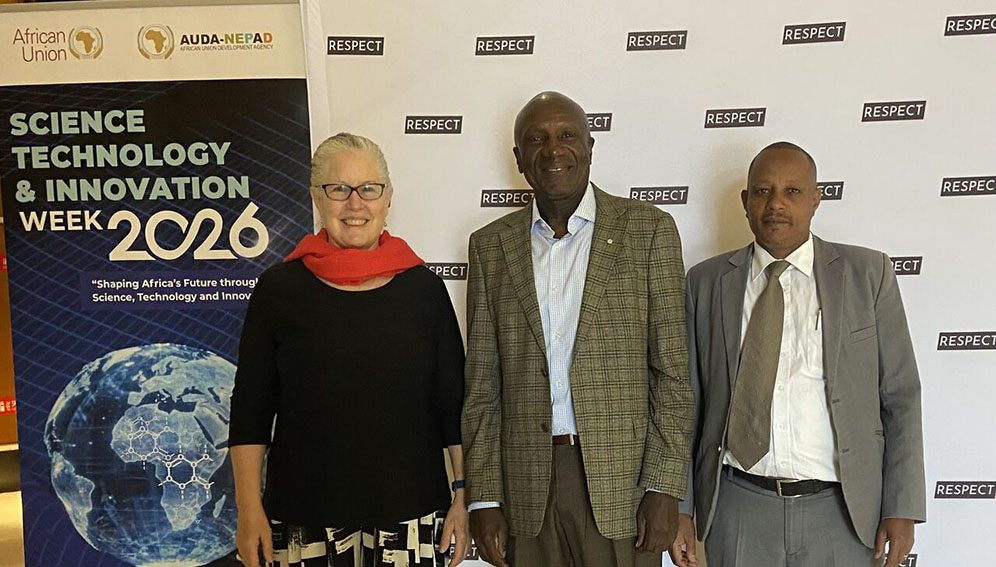SGCI News
Developed in Burkina Faso, this digital solution reduces the risk of prescribing drugs that are incompatible with each other or unsuitable for the patient’s health. Fast playback This application, developed…

Developed in Burkina Faso, this digital solution reduces the risk of prescribing drugs that are incompatible with each other or unsuitable for the patient’s health.
| Fast playback |
| This application, developed by the medical informatics laboratory, lists over 4,000 drugs. |
| Its user-friendly options help doctors avoid medication errors |
| For the experts, if its use is popularized, it will revolutionize patient care. |
By Abdel Aziz Nabaloum
The Medical Informatics Laboratory (LINFOMED) in Burkina Faso has developed an application called APURMED (Application pour l’usage rationnel du médicament – Application for the rational use of medicines), which can be used to retrieve scientific data on a drug, search for its equivalents and analyze a medical prescription.
“It’s a question of seeing whether a drug associated with another drug on a prescription is compatible or not, and analyzing whether a prescribed drug is contraindicated or not with the patient’s profile,” explains Bienvenu Tinguéri, pharmacist-biologist, clinical pharmacology specialist and LINFOMED coordinator.
The idea of developing APURMED arose from the observation that the availability of medicines was “low” and their use “not rational” in Burkina Faso.
“As we learned more about drugs, we realized that almost half of all prescriptions pose serious problems of avoidable medication errors,” says Bienvenu Tinguéri.
“It’s important to improve prescriptions for better care. That’s why we thought that the lever we needed to activate would be the rational use of medicines”, explains the LINFOMED coordinator.
Downloadable from Playstore, the application is designed for healthcare professionals, public and private healthcare establishments, etc., to help them improve medical prescriptions.
Bienvenu Tinguéri points out that it lists over 4,000 drugs, with options for analysis, prescribing, interactions and equivalence searches.
“For available medicines, their use is marred by a number of shortcomings, such as errors in prescribing, dispensing, compliance, wastage and stock-outs,” he laments.
“Human-related medical errors are potentially avoidable. However, we believe that human capabilities are insufficient for the rational use of medicines, due to the sheer number of drugs and their properties. This is why we have proposed this digital solution”, he adds.
Once the application had been designed, it was successfully tested at the Remedis pharmacy in Bobo-Dioulasso, Jobber in Ouagadougou and Zoodo in Koudougou.
Gérard Bationo, a pharmacist with the Ministry of Health’s Laboratory Department, is one of APURMED’s users. For him, it’s a very useful application, and its use will contribute to more “rational” use of medicines.
“Queries are answered quickly and use is straightforward, no training needed for this in principle. You just need a little explanation and access, but you still need to be familiar with healthcare concepts. What’s more, it incorporates a number of parameters of professional interest concerning the drug,” he asserts.
According to the latter, APURMED is “the first application in Burkina Faso that can analyze a medical prescription and quickly make a decision for optimal use of medicines”.
For example,” explains Gérard Bationo, “thanks to the results of prescription analyses, we can prevent a risky drug interaction in a patient, as well as a combination of incompatible drugs.
For, he explains, “detailed information on the use of the drug is available, as well as the possibility of searching for drug equivalents, and finding out the estimated or indicative cost of a treatment”.
“All this seems to me to be very important and decisive in therapeutics. APURMED can undoubtedly change habits, contribute to ongoing training on medicines, and have a positive impact on treatment and therefore our healthcare system, if it is adopted and popularized”, concludes Gérard Bationo.
The application was developed under the auspices of the Scientific Research Granting Agencies Initiative (SRGI).
Related News
Building Africa’s science future: inside the SGCI alliance
As Phase 3 of the Science Granting Councils Initiative launches on the margins of the African Union Summit in Addis Ababa last week, the SGCI Alliance Chair explains why this moment marks a decisive turning point for African science. Cephas Adjei Mensah describes what is…
Open call: Support for science granting councils in Sub-Saharan Africa
The International Development Research Centre (IDRC), through the Science Granting Councils Initiative (SGCI), has launched a call for proposals to support science granting councils in Sub-Saharan Africa in the establishment and operationalisation of the Capacity Strengthening Hub under Phase III of the SGCI-3. The Hub…
SGCI phase 3: USD 42M boost for Africa’s STI agenda
It was an exhilarating moment as the Science Granting Councils Initiative (SGCI) Phase 3 funding announcement was officially made yesterday during the Science, Technology, and Innovation (STI) Week 2026, held in Addis Ababa, Ethiopia. The STI Week, organised by AUDA-NEPAD and the African Union and…
SGCI funded projects
Rwanda’s integrated approach to sustainable agriculture and nutrition
Project Titles & Institution Areas of Research Number of Projects being funded Project Duration Grant Amount In-Kind Distribution Council Collaboration with other councils





